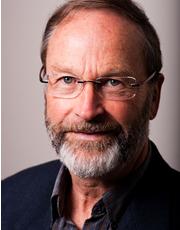Capital Institute’s work on financial system reform is very much driven by the concept of system resilience.
In an email exchange last week Bill Rees, co-creator of the “ecological footprint,” fellow at the Post-Carbon Institute, and professor at the University of British Columbia, invited us to look at resilience from a perspective we often fail to consider. As he explains below, while resilience is critical for systems’ survival, in times of great instability, that same resilience can be problematic for the larger system(s) in which a resilient subsystem is housed. This idea, which is also a critical argument advanced by Donella Meadows in her seminal book Thinking in Systems, is included below in her own words.

Bottom line? Resilience may well be a common phenomenon in the evolution of complex dynamic systems. It is no doubt critical to their adaptation and survival in a rapidly changing environment. However, particular instances of systemic resilience may work against society’s wider interests. It follows that we should be selective in our deliberate application of the concept. In some instances policy may have to be designed to undermine the resilience of certain societal sub-systems even as it attempts to enhance the resilience of others.” More on Bill’s take on resilience can be found in his paper “Thinking ‘Resilience’.”

When a subsystem’s goals dominate at the expense of the total system’s goals, the resulting behavior is called sub-optimization.
-and-
Don’t maximize parts of systems or subsystems while ignoring the whole. As Kenneth Boulding once said, Don’t go to great trouble to optimize something that never should be done at all. Aim to enhance total systems properties, such as creativity, stability, diversity, resilience, and sustainability–whether they are easily measured or not.
As you think about a system, spend part of your time from a vantage point that lets you see the whole system, not just the problem that may have drawn you to focus on the system to begin with. And realize, that, especially in the short term, changes for the good of the whole may sometimes seem to be counter to the interests of a part of the system. It helps to remember that the parts of a system cannot survive without the whole. The long term interests of your liver require the long term health of your body, and the long term interests of sawmills require the long-term health of forests.

